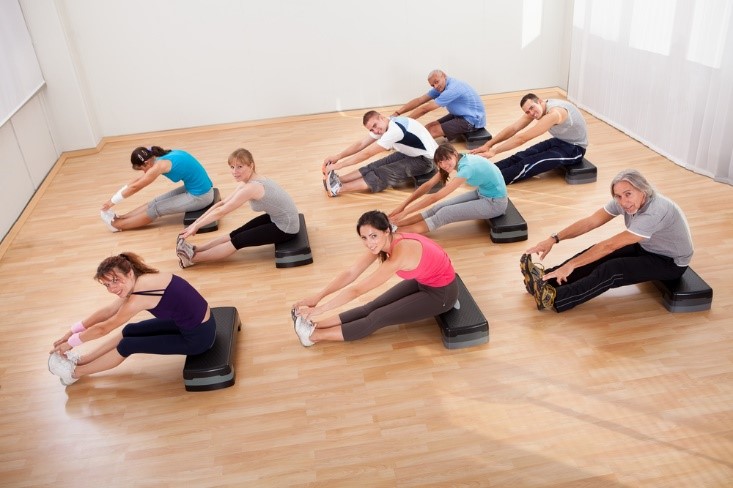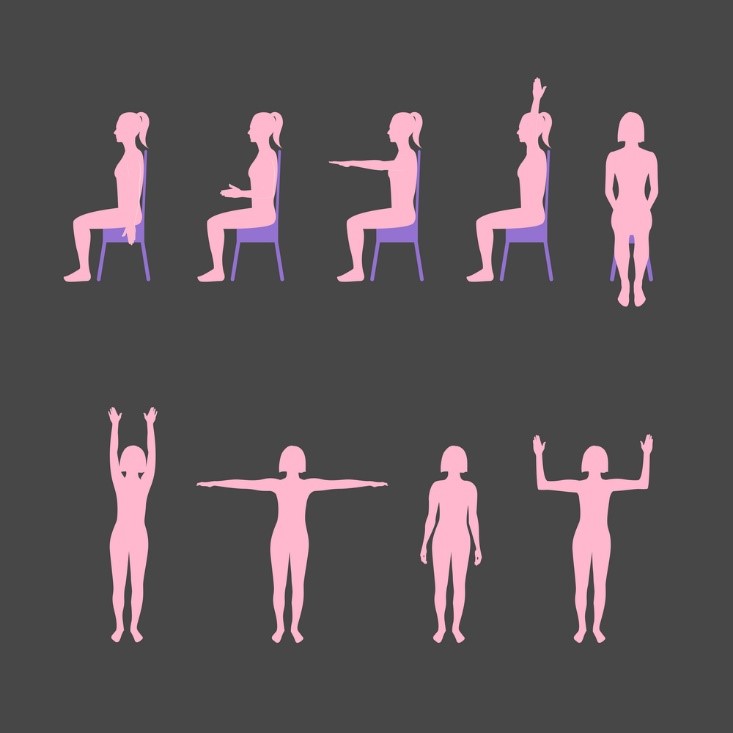Do you occasionally suffer from lower back pain, wrist strain, neck and shoulder pain, eye strain, or tight hips?
Do you often sit at a desk?
You may not have realised it, but the two are connected…
It’s the sedentary nature of deskwork…combined with poor seated posture…that leave you aching the moment you stand up.
Plus, statistics show that the older you get and longer you ignore those worsening pains, the harder it becomes to correct.
Think ‘hip replacement’ or worse…
But the good news is that there’s a strategy that combats this destructive habit…and it doesn’t cost a penny.
The folks at Tiny Pulse have identified seven stretches that, if you follow the instructions carefully, could prevent the 5pm back-ache…and help you avoid expensive corrections down the road.
Here at the Money Morning New Zealand office, one of our team decided to try this himself. With the discipline of an SAS operator, he repeated the seven stretches every hour…and he’s found that the normal soreness has dissipated, he’s more energetic, and he’s become far more productive.
Now you don’t need to do these stretches every hour…
Heck, you don’t even need to do all seven…
But these specific stretches target and refresh the exact muscle groups that tend to be most affected by desk life. So doing all eight, as regularly as possible, will probably give you the best results.
No more chit-chat. Let’s dive right in.
1. Standard elbow stretch
To start, put your right hand on your left shoulder. It should be crossing your body like a seatbelt. Now, with your left hand, softly pull your right elbow towards your left side. This will stretch out your upper arm and shoulder. The best part is that you don’t even have to stand up for this one. Stretch for eight seconds then switch arms.

2. Sit and reach
Whilst sitting in your chair, scoot your bum toward the edge of the seat, stretch your legs out and lock your knees. For most of us, that will give us a good stretch…but for an advanced version, try to touch your toes and hold your position for 15 or 20 seconds. This will give you a good stretch on the lower back too.

3. Reach as high as you can
This one is really simple, but gives a comprehensive stretch throughout your upper body. Interlock your fingers together, raise your arms, and face your palms towards the ceiling. Reach as high as you can. Your trapezoids should get stretched nicely.

4. Stretch out both shoulders
Put your right hand on your left elbow and stretch it across the front of your chest. Now, do the exact same on the other side. Doing this stretch regularly will prevent you from having sore shoulders and arms from working at your desk.

5. Push your palms together
If you’re like most professionals in the work place, you spend a good chunk of your day behind the keyboard of a computer. The angle of your fingers, wrists, forearms…and lots of typing…can eventually cause you to have carpel tunnel syndrome.
To prevent this you must stretch your wrists and fingers regularly. This can simply be done by putting your palms together. Then press them together until you feel a mild stretch in your forearms. You’ll notice an ever deeper stretch if you do this while keeping your elbows off the desk.

Source: Deposit Photos
6. Sit and twist
Whilst sitting down in your chair, cross your legs, putting one leg over your other knee. Raise your hands up, inhale for a count of three and exhale for a count of five.
Whilst exhaling, twist your body to the left if the left leg is over the right knee, or to the right if the right leg is over the left knee, using your thigh or the edge of the chair as leverage. Then repeat for the other side. You’ll quickly notice that your back is a little less stiff at the end of the day.

Source: Deposit Photos
7. Stand up and sit back down
This last tip is the simplest, but perhaps the most important. Every 15 minutes or so get into a habit of standing up and sitting down. This is very important because it will help keep the blood flowing smoothly. It also helps reset your muscles, bones, and posture throughout the day. Try this out and see how much better you can feel…and how much more energetic you can be.

If you follow these seven steps…and stretch regularly, you could find that deskwork isn’t nearly as draining. That you feel reenergised. That you’re more limber. And that your GP is pleasantly surprised when you go in for your next checkup.
Be well.
Regards,
Alistair Bilkey
Contributor, Money Morning New Zealand





Alistair is the Chief Technology Officer at Wealth Morning. An experienced developer, his responsibilities include the website, ecommerce and our WealthMail system. He is an investor and trader in his own right with a strong interest in high-growth technology businesses and cryptocurrency. He previously worked in web development and digital strategy with a leading local bank. Alistair is a shareholder of Wealth Morning.